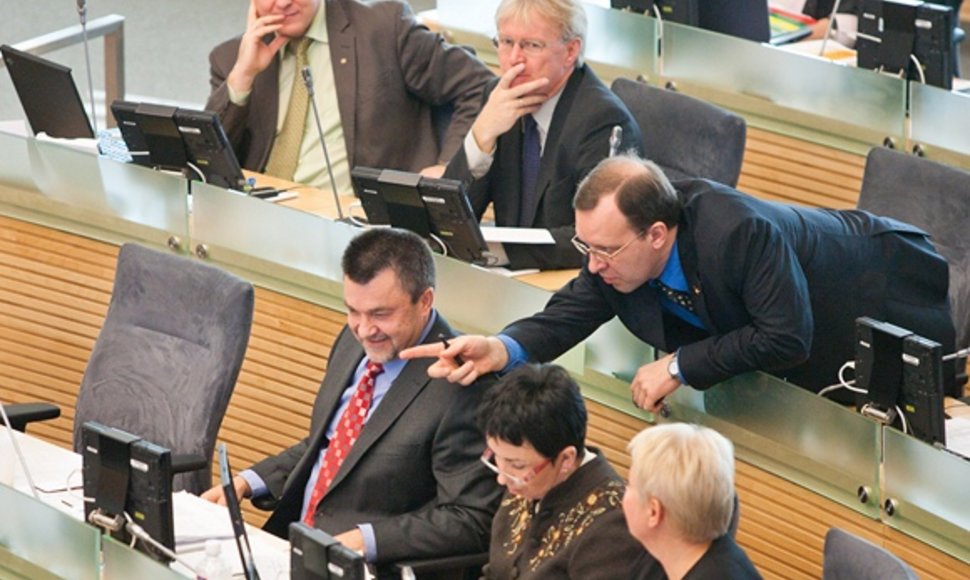Among those in support of the draft resolution was the entire opposition political group of the Social Democrats except for one member, while the majority of ruling conservatives were against.
The draft resolution was proposed by Žilvinas Šilgalis and Agnė Zuokienė of the mixed group of parliamentarians.
In his presentation of the document, Šilgalis asked a rhetoric question whether "it was a luxury for the electorate to support the stale administration including the government for another six months," adding that holding premature elections to check the confidence of voters was a better option.
"I am not saying that the government did everything wrong, there were good deeds that are good for the state. However, in my opinion, the general assessment is that the performance was bad rather than good," the MP said.
Valentinas Mazuronis, elder of the opposition group of Order and Justice Party, said that "Lithuania would benefit from a shorter term of the current ruling majority."
Meanwhile, Petras Auštrevičius of the ruling Liberals said that authors of the resolution should prove seriousness of their intentions and pledge to give up their mandates regardless of the outcome of their initiative.
The idea of premature elections was first put forward by Homeland Union – Lithuanian Christian Democrats (conservatives) deputy leader, Parliamentary Speaker Irena Degutienė, in March, after President Dalia Grybauskaitė had rejected the proposal of the conservative Prime Minister Andrius Kubilius to sack Liberal Centrist Raimundas Palaitis from the post of interior minister.
Shortly after, the two MPs – Šilgalis and Zuokienė – registered the draft resolution on holding the early election on 3 June.
After Palaitis stepped down, the parliamentary speaker said the early election may no longer be needed, if the ruling block settles its differences.
According to the Constitution, early general election can be held by Seimas resolution adopted by the 3/5 majority of the 141-seat parliament, i.e., 85 parliamentarians.












